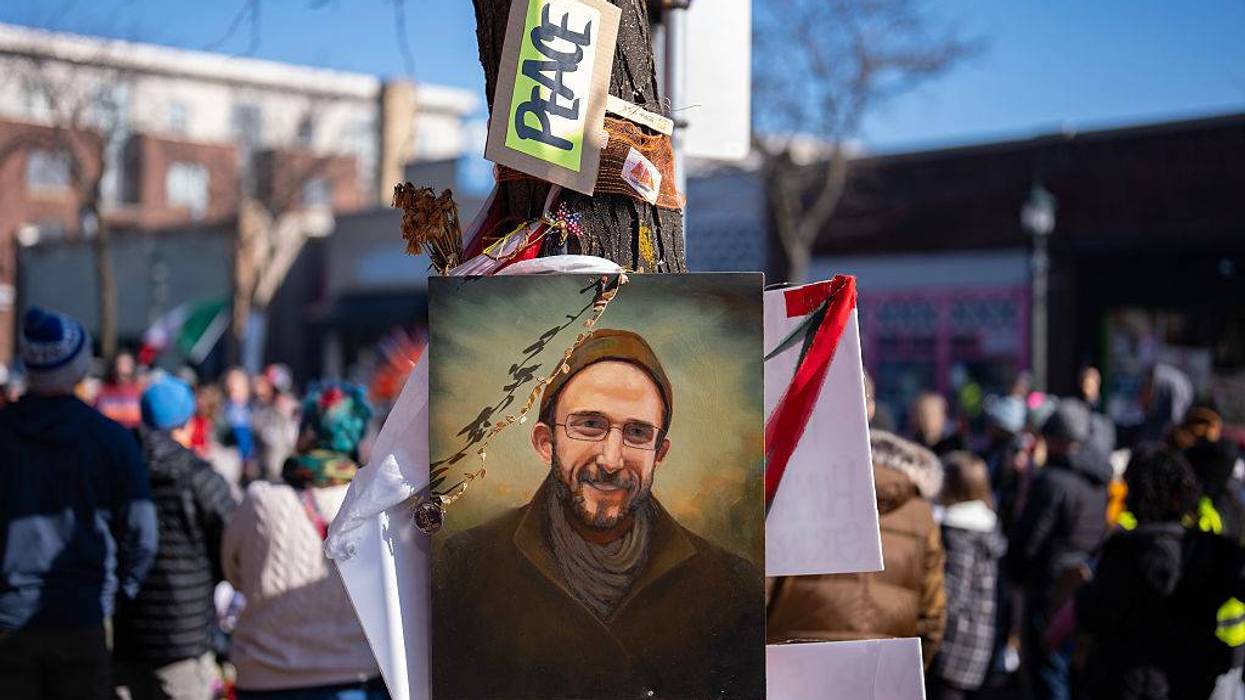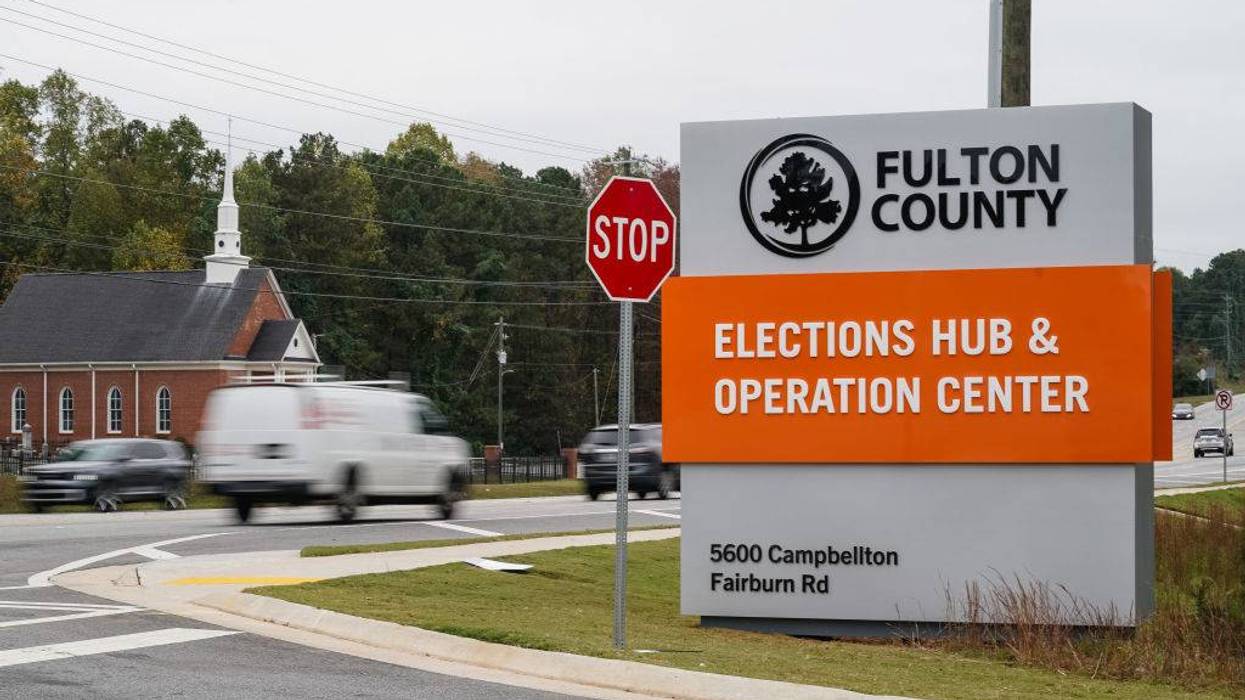Lawmakers have so far only scratched the surface of the information available. But what they've seen after just one day has even some of President Donald Trump's biggest defenders reevaluating their dismissal of the Epstein scandal.
“Initially, my reaction to all this was, I don’t care, I don’t know what the big deal is," Sen. Cynthia Lummis (R-Wyo.) told independent journalist Pablo Manríquez on Monday. "But now I see what the big deal is and it was worth investigating. The members of Congress who were pushing this were not wrong!”
Rep. Ro Khanna (D-Calif.) and Thomas Massie (R-Ky.), who have led the charge in Congress for the files to be released, said on Monday that six individuals who were “likely incriminated” in Epstein’s crimes had their identities blacked out by the DOJ in the files that were released publicly.
“In a couple of hours, we found six men whose names have been redacted, who are implicated in the way that the files are presented,” Massie told reporters outside the DOJ office where lawmakers viewed the files.
They did not initially specify the individuals' names, but Massie said at least one was a US citizen and some were “high‑up” foreign officials.
Massie later revealed that one of the men on this list was Les Wexner, the ex-CEO of L Brands, which owns Victoria's Secret. Wexner appears in the files thousands of times and was infamously one of Epstein's most intimate financial clients.
After Massie questioned why Wexner's name was blacked out, Deputy Attorney General Todd Blanche announced it had been unredacted and said the DOJ was "hiding nothing." The other five names remained redacted as of Tuesday morning.
The FBI closed its investigation into Epstein in July, concluding that while the financier himself abused several underage girls, along with his partner Ghislane Maxwell—who is currently serving 20 years in prison—he was not running a sex-trafficking ring that included other powerful figures.
Rep. Jared Moskowitz (D-Fla.) said the files he and other lawmakers reviewed yesterday told a much different story.
“It’s disgusting," he said. "There are lots of names, lots of co-conspirators, and they’re trafficking girls all across the world."
Rep. Becca Balint (D-Vt.) put it more succinctly when a Drop Site News reporter caught her on the way back from the DOJ office and asked what she learned from viewing the files.
"There's a bunch of sick fucks," she said.
Lawmakers also said the documents contradicted Trump’s claims that he booted Epstein from membership at his Florida club, Mar-a-Lago, and disassociated from him in the early 2000s because the predator was poaching young female workers from the resort. Trump has said that one of them was the late Virginia Giuffre, then a 17-year-old locker room employee, who’d go on to become one of Epstein’s victims and most prominent accusers.
According to Rep. Jamie Raskin (D-Md.), "for some indeterminate, inscrutable reason,” the DOJ concealed a summary of statements allegedly made by Trump, provided by Epstein's lawyers, in which the president said he never asked Epstein to leave the club.
Balint confirmed she saw the same document.
"One [document] was related to whether or not Trump had ever kicked Epstein out of Mar-a-Lago, as he claimed," she said. "It's not true. It's a lie."
The law passed in November requiring the files' release mandates that victims of Epstein's abuse have their privacy protected, but forbids the DOJ from redacting information to protect prominent individuals, including government officials, from embarrassment.
“The broader issue is why so many of the files they’re getting are redacted in the first place,” Khanna said. “What Americans want to know is who the rich and powerful people are who went to [Epstein's] island? Did they rape underage girls? Did they know that underage girls were being paraded around?”
Massie and Khanna said they were disappointed to find that many of the files that were supposed to be available were still heavily redacted. Massie lamented that the DOJ had not yet provided access to the FBI’s 302 forms, which contain official summaries of interviews with witnesses and victims.
Raskin said viewing the files affirmed many of the concerns about the DOJ "over-redacting" files.
“We didn’t want there to be a cover-up, and yet, what I saw today was that there were lots of examples of people’s names being redacted when they were not victims,” Raskin told CNN. "There are thousands and thousands of pages replete with redactions. There are entire pages in memos where you can't see anything."
Lawmakers were given permission to view the files in a letter sent by the DOJ on Friday, following mounting criticism about the extensive number of redactions in the public release. They are required to sift through the files in a tightly-secured DOJ office and are barred from making copies available to the public, though they are allowed to take notes.
Raskin said that the office contains only four computers, making the process of sorting through more than 3 million files agonizingly slow.
"Working 40 hours a week on nothing else but this, it would take more than seven years for the 217 members who signed the House discharge petition to read just the documents they've decided to release," he wrote in a post on social media.
Attorney General Pam Bondi is scheduled to testify before the House Oversight Committee about the handling of the files on Wednesday. Massie said he plans to grill her about why so many potential co-conspirators had their names redacted in the public release.
“I would like to give the DOJ a chance to say they made a mistake and over‑redacted and let them unredact those men’s names," he said. That would probably be the best way to do it.”
Blanche has responded to the criticism on social media, saying, "The DOJ is committed to transparency."
Khanna, who appeared on MS NOW’s “Morning Joe” Tuesday morning, said that based on what he saw in the public release, the opposite is true.
" Donald Trump had the FBI scrub those files in March," he said. "And the documents we saw already had the redactions of the FBI from March. So we still have not seen the vast majority of documents unredacted that have the survivor statements of the rich and powerful men who committed these crimes."




